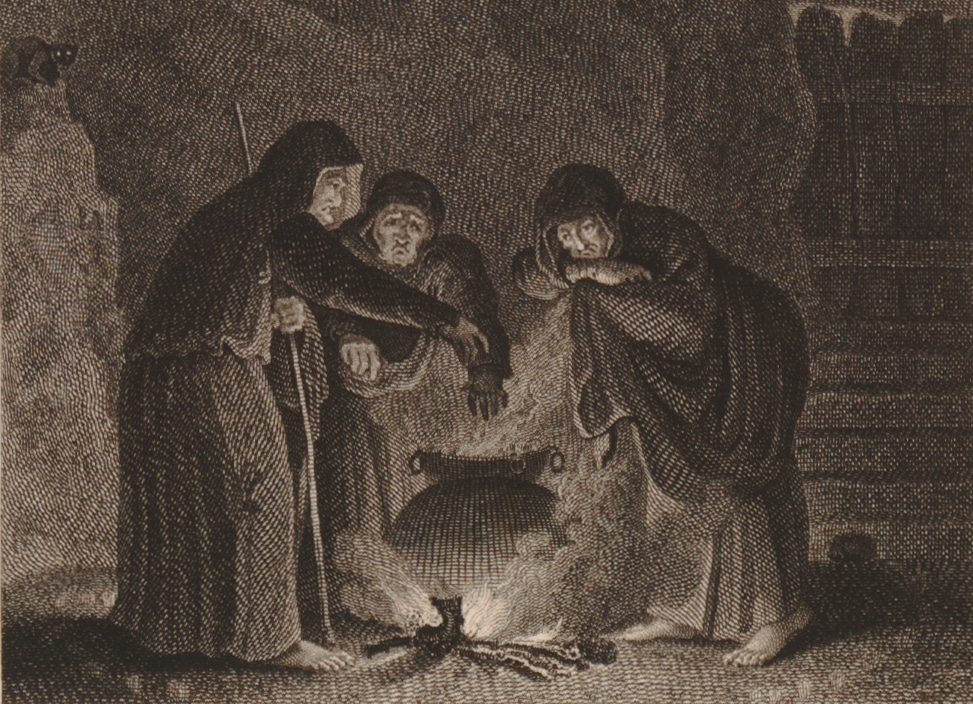GCSE English
Macbeth – Act Overview

Whenever I start working with new students on preparing for a Macbeth Exam, one of the first things we do is make sure they understand the play’s plot. To do this I often used a Macbeth Act Overview.
Many students have knowledge gaps regarding the events of the play – and you can’t write on what you don’t know! – so my advice is always to spend some time going back over the plot to understand the bare bones. Then you can start to add in analysis and context, which is key for scoring high marks in the exams. Devising your own Macbeth act overview can be very helpful.
So, what are the key themes in Macbeth? Well, at its heart, Macbeth is a tragedy about a Scottish general whose ambition to become king ultimately leads to his downfall. Spurred on by the prophecies of three witches, who tell him he will become King of Scotland, Macbeth kills the current king, Duncan, and seizes the throne. But Macbeth’s success gives way to paranoia, and a spate of bloody killings leads to civil war resulting in Macbeth’s own death and the reinstatement of Duncan’s son Malcolm as the rightful king of Scotland.
Of course, it goes without saying that there’s more to it than this, but knowing the very basics of the plot is a good place to start. You can then break up the action into acts (as I’ve done below) to help you remember where everything is and really get to grips with what’s happening. This will really help towards exam success. Remember, if you’re aiming for high marks – 7s, 8s and 9s – you’ll also need to feel confident working with analysis, and social and historical context as well.

Macbeth Act Overview
Act One
We start our Macbeth act overview with the three Witches awaiting Macbeth. King Duncan hears how Macbeth, Thane of Glamis, and Banquo, Thane of Lochaber, have just defeated the allied forces of Norway and Ireland, with Macbeth in particular praised for his bravery. The Witches re-enter amidst thunder (an example of pathetic fallacy) and meet Macbeth and Banquo on the heath. They hail Macbeth, proclaiming that he will be ‘Thane of Cawdor’ and ‘King hereafter’; Banquo, they say, will be less than Macbeth, yet happier, less successful, yet more – an example of paradox (a logically self-contradictory statement) – and that he will father a line of kings, although he will not be king himself. Another thane, Ross, informs Macbeth that he is now Thane of Cawdor as well as Glamis. With the Witches’ first prophecy fulfilled, Macbeth wonders about becoming king. He writes to his wife, Lady Macbeth – whose famous soliloquy in Act 1, Scene 5 outlines her response – and together they plot to murder Duncan when he comes to stay at their castle at Inverness. While Macbeth expresses doubts, Lady Macbeth does not, attacking her husband’s masculinity whenever his resolve fails.
Act Two
Act Two opens with Banquo and his son Fleance remarking that there are no stars in the sky. Under cover of darkness, Macbeth stabs Duncan while he is sleeping, but is so badly shaken that Lady Macbeth takes charge, planting the bloody daggers on Duncan’s servants to suggest that they are the murderers. Early next morning, the nobleman Lennox arrives with Macduff, Thane of Fife, who discovers Duncan’s body in the King’s chamber. Duncan’s sons Malcolm and Donalbain flee, fearing for their lives and making them suspects in Duncan’s murder. Macbeth, as Duncan’s kinsman, assumes the throne as new King of Scotland.
Act Three
For our Macbeth act overview, Act Three begins with a short soliloquy from Banquo. He confesses his suspicions of Macbeth. Fearing Banquo and Fleance, Macbeth arranges to have them both murdered. Three assassins kill Banquo, but Fleance escapes, leaving Macbeth worried and furious. Later, at a banquet, Macbeth sees Banquo’s ghost sitting in his place. He begins to rant and rave, startling his guests, but Lady Macbeth tells them not to worry, and that her husband is merely unwell.
Act Four
Disturbed and unable to sleep, Macbeth seeks out the Witches, asking them to reveal further prophecies to him. The Witches summon three grotesque apparitions: an armoured head, warning Macbeth to beware Macduff; a bloody child, saying that no-one born of woman will harm him; and a crowned child holding a tree, telling Macbeth he will be safe until Great Birnam Wood comes to Dunsinane Hill. Macbeth, relieved at these supposedly impossible prophecies, asks whether Banquo’s sons will reign in Scotland, and the witches produce a procession of eight kings, the last carrying a mirror reflecting further kings, which Macbeth understands to be Banquo’s descendants. Lennox informs Macbeth that Macduff has gone to England to find Duncan’s son Malcolm, the rightful heir to the Scottish throne. Macbeth orders that Macduff’s castle be seized, sending men to murder his wife and children.
Act Five
We close our Macbeth act overview with a gentlewoman and a doctor discussing Lady Macbeth’s strange habit of sleepwalking. Lady Macbeth enters, apparently asleep, with a candle in her hand. She babbles senselessly, revealing her knowledge of the murders of Duncan and Lady Macduff, and repeatedly attempting to wash an imaginary bloodstain from her hands (her famous ‘Out, damned spot!’ speech).
In England, Macduff learns of his family’s slaughter. Grief-stricken, he vows revenge, leading an army to Scotland to challenge Macbeth. While camping in Birnam Wood, the soldiers are ordered to cut down and carry tree branches as camouflage, thus fulfilling the Witches’ second prophecy as the wood now appears to ‘move’ towards Dunsinane.
Macbeth learns that Lady Macbeth has killed herself and sinks into despair. Macduff’s army overwhelms Macbeth’s, culminating in a duel between the two leaders. Macbeth boasts that he does not fear Macduff, for he cannot be killed by any man born of woman, to which Macduff answers that he was born by caesarean section and is therefore not ‘of woman born’, thus fulfilling the final remaining prophecy. The fighting continues offstage, and Macbeth is beheaded by Macduff. In the final scene, Malcolm, now King of Scotland, announces a new order, pardoning old enemies and putting the play’s events behind them.
The usefulness of a Macbeth Act Overview
By putting together a Macbeth act overview can be very useful when helping towards your revision. An act by act breakdown makes it easy to remember the broad understanding of what takes place in each act. This will make, making revision notes manageable.
Devising a Macbeth act overview will help you retain higher overall marks.
All line references are taken from the Norton Shakespeare International Student Edition.
__
Copyright © 2021 Sarah Hand. All rights reserved.
London’s No.1 Tuition Agency
Media coverage
Mentor Education won Tutoring Provider of the Year at the Education Investor Awards in 2022 and 2024. We also won at the National Tutoring Awards and an Entrepreneur of the Year award in 2024. We are regularly featured in the Education Press, including School Report Magazine, the Good Schools Guide, and more.
Our Clients Journeys
Case studies
With the support of our wonderful families and the expertise of a dedicated team of school entrance, GCSE and A Level tutors, we work closely with every child to help them confidently navigate their exams. Whether it’s securing a scholarship, addressing specific learning needs, aiming for a place at a competitive school, or securing the grades for university, we’re here to guide you every step of the way.
Customers love what we do
What our parents have to say about Mentor
We are so proud of our 5 star reviews and testimonials which are a testament to the relationships our teachers build with their pupils and the success they create together.

